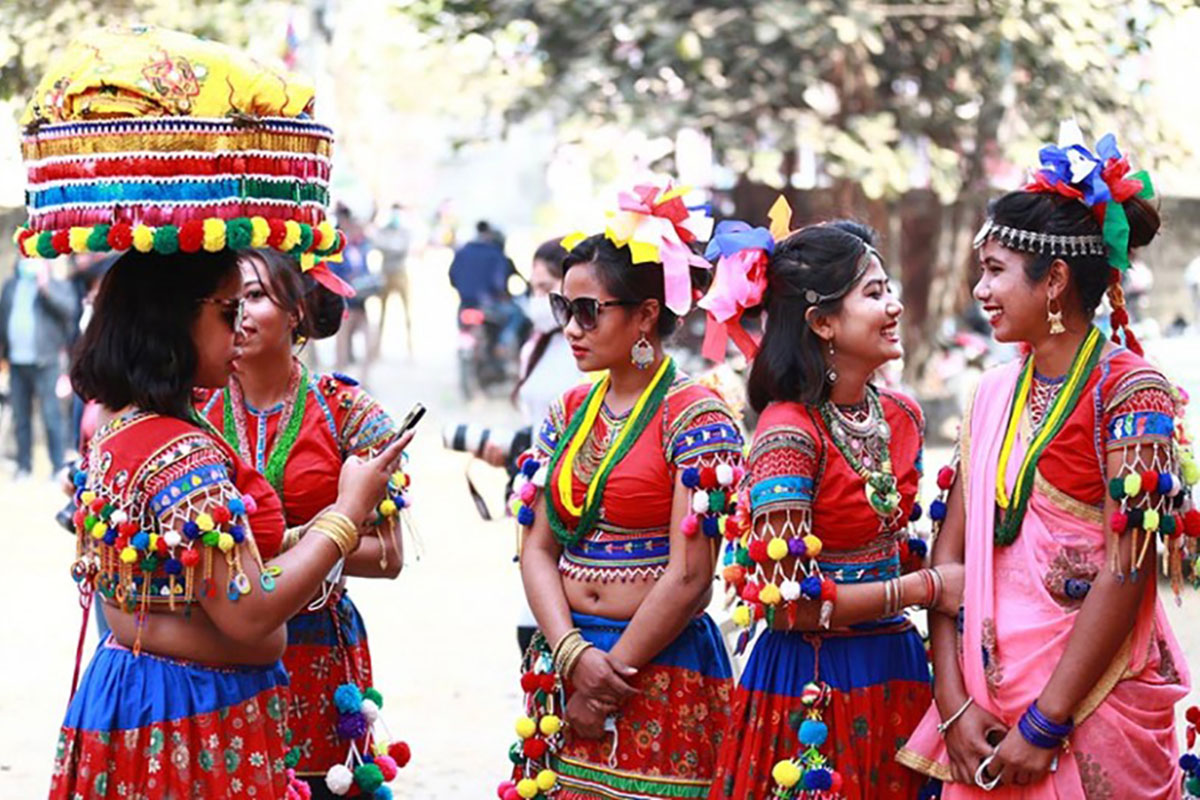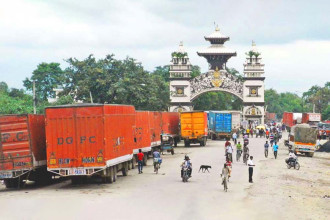
KATHMANDU: 'Maghe Sankranti', also known as 'Maghi' and 'Ghyo Chaku Sallnhu', is being celebrated across the country today.
On the occasion, devotees and revellers take holy dips in rivers and ponds, offer worship at various temples, and savour delicacies like ghee, yam, khichadi and sweets.
According to astrological beliefs, Makar Sankranti holds particular importance. From this day, the sun begins its ascent and moves into the northern hemisphere, transitioning from the Tropic of Sagittarius to the Tropic of Capricorn (Makar). It is commonly held that from this day forward, days lengthen and nights shorten.
Devotees are said to be bestowed with special blessings and robust health if they observe the festival according to prescribed rituals. The Newar community commemorates the festival by remembering the departed ones, and consuming ghee, chaku, and sweets, a tradition known as 'Ghyo Chaku Sallnhu'. Elders anoint the heads of younger family members with oil.
Pilgrims flock to Devghat, Barahkshetra, Ridi, Panauti, Dolalghat, and Kankai in Nepal, as well as Prayag and Gangasagar in India, to take holy bath and perform 'Shraddha'. The festival also bears significance in Ayurveda and medical science. The foods consumed are considered components of a balanced diet that bolsters the body's immune system.
At Tilmadhav Narayan Temple in Taumadhi Tole, Bhaktapur, a festival is held, and worship of Deepakankar Buddha is conducted.
Similarly, the Tharu community celebrates with enthusiasm for five days, referring to the festival as 'Maghi', 'Makarsankarait', 'Maghesankarait', or 'Tilasankarait'. In Tarai region, various communities mark the occasion as 'Nahan', a bathing festival.
While some Tharu leaders and civil society members have designated 'Maghi' as a New Year celebration, experts on Tharu culture assert that 'New Year' actually commences in Baisakh. The Tharu community views Maghi as the start of a new season, making plans for household and farm management post-harvest. Tharu households engage new labourers or managers for farm work or enter into new agreements with individuals from other communities for specific tasks. Amidst the festivities, blacksmiths, tailors, barbers, priests, and others with specialised skills are appointed and employed. However, these traditions are evolving due to changes in professions aligned with educational qualifications and a dwindling workforce caused by increased migration for foreign employment.
During the festival, the Tharu community organises feasts. A variety of foods, including oysters, pila, fish, mutton, squab, duck, and pork, are enjoyed. Additional treats include sweets crafted from molasses, puffed rice, and sesame seeds. While Tharus traditionally celebrate within the family, those in urban areas have, since 2006, begun to observe the festival collectively as a fair, following its recognition as a national festival by the government.






-1732098076.jpeg)

-1732084314.jpeg)